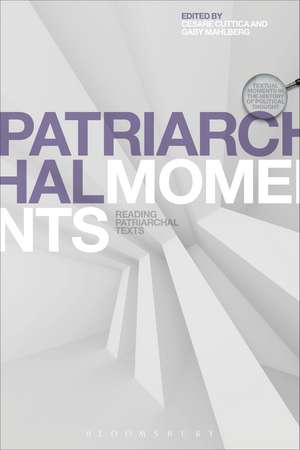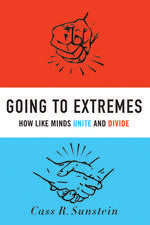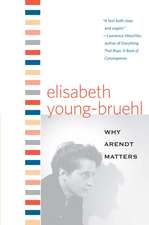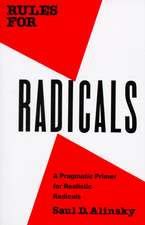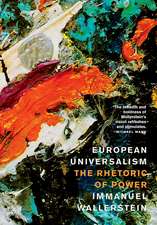Patriarchal Moments: Reading Patriarchal Texts: Textual Moments in the History of Political Thought
Editat de Cesare Cuttica, Gaby Mahlbergen Limba Engleză Paperback – 16 dec 2015
| Toate formatele și edițiile | Preț | Express |
|---|---|---|
| Paperback (1) | 186.35 lei 22-36 zile | |
| Bloomsbury Publishing – 16 dec 2015 | 186.35 lei 22-36 zile | |
| Hardback (1) | 426.10 lei 43-57 zile | |
| Bloomsbury Publishing – 16 dec 2015 | 426.10 lei 43-57 zile |
Preț: 186.35 lei
Preț vechi: 228.44 lei
-18% Nou
Puncte Express: 280
Preț estimativ în valută:
35.66€ • 37.33$ • 29.50£
35.66€ • 37.33$ • 29.50£
Carte disponibilă
Livrare economică 17-31 martie
Preluare comenzi: 021 569.72.76
Specificații
ISBN-13: 9781472589156
ISBN-10: 1472589157
Pagini: 232
Dimensiuni: 156 x 234 x 15 mm
Greutate: 0.41 kg
Editura: Bloomsbury Publishing
Colecția Bloomsbury Academic
Seria Textual Moments in the History of Political Thought
Locul publicării:London, United Kingdom
ISBN-10: 1472589157
Pagini: 232
Dimensiuni: 156 x 234 x 15 mm
Greutate: 0.41 kg
Editura: Bloomsbury Publishing
Colecția Bloomsbury Academic
Seria Textual Moments in the History of Political Thought
Locul publicării:London, United Kingdom
Caracteristici
Unique reader combining historical range with highly detailed examination of texts and arguments
Notă biografică
Cesare Cuttica is Lecturer in British History at the University of Paris 8-Vincennes, France.Gaby Mahlberg is an independent scholar based in Berlin, Germany.
Cuprins
Introduction Cesare Cuttica (The University of Paris VIII, France) and Gaby Mahlberg (Northumbria University, UK)The Monotheistic Tradition and the Ancient World1 The Talmud: A Tale of Two Bodies Sarra Lev (Reconstructionist Rabbinical College, USA)2 Of Women, Snakes and Trees: The Bible Deborah W. Rooke (Oxford University, UK)3 Patriarchalism and the Qur'an Asma Barlas (Ithaca College, USA)4 Citizens but Second-Class: Women in Aristotle's Politics (384 to 322 B.C.E.) Edith Hall (King's College, London, UK) The Middle Ages, Renaissance & Reformation5 Augustine's The City of God (5th century A.D.): Patriarchy, Pluralism, and the Creation of Man Catherine Conybeare (Bryn Mawr College, USA)6 Men, Women and Monsters: John Knox's First Blast of the Trumpet (1558) Anne McLaren (University of Liverpool, UK) 7 Love and Order: William Gouge, Of Domesticall Duties (1622) Karen Harvey (University of Sheffield, UK) The Early Modern Period8 Filmer's Patriarcha (1680): Absolute Power, Political Patriarchalism and Patriotic Language Cesare Cuttica (The University of Paris VIII, France) 9 Patriarchy, Primogeniture and Prescription: Algernon Sidney's Discourses Concerning Government (1698) Jonathan Scott (University of Auckland, New Zealand) 10 Locke's Some Thoughts Concerning Education (1693): Fathers and Conversational Friendship J. K. Numao (Keio University, Tokyo, Japan) 11 'Nothing Pleases Like an Intire Subjection': Mary Astell Reflects on the Politics of Marriage (1700) Brett D. Wilson (The College of William & Mary, USA) The Eighteenth Century/ The Enlightenment12 Ants, Bees, Fathers, Sons: Pope's Essay on Man (1734) and the Natural History of Patriarchy Paul Baines (University of Liverpool, UK) 13 Rousseau's Emile (1762): The Patriarchal Family and the Education of the Republican Citizen Sandrine Parageau (Paris West University Nanterre La Défense, France) 14 Patriarchy and Enlightenment in Immanuel Kant (1784) Jordan Pascoe (Manhattan College, USA)15 In 'Her Father's House': Women as Property in Wollstonecraft's Mary (1788) Michelle Faubert (University of Manitoba, Canada)The Nineteenth Century16 Father Enfantin, the Saint-Simonians and the 'Call to Woman' (1831) Daniel Laqua (Northumbria University, UK) 17 Leo Tolstoy, The Kreutzer Sonata (1889) Charlotte Alston (Northumbria University, UK)18 Henrik Ibsen's Hedda Gabler as 'Patriarchal Moment' (1890) Arnold Weinstein (Brown University, USA) The Twentieth Century19 Account of a Fight against Paternal Authority: Franz Kafka's Letter to his Father (1919) Oliver Jahraus (Ludwig Maximilian University of Munich, Germany)20 Federico García Lorca's Blood Wedding: Patriarchy's Tragic Flaws (1932) Federico Bonaddio (King's College, London, UK)21 'His peremptory prick': the failure of the phallic in Angela Carter's The Passion of New Eve (1977) Ruth Charnock (University of Lincoln, UK) Postscript Gaby Mahlberg (Northumbria University, UK)
Recenzii
[This] volume should prove to be a useful and well-priced addition to any undergraduate course dealing with the contours of patriarchal power in the western world. The passages chosen are all relevant and interesting, and student readers will find the short essays lively and easily digestible.
This excellent, wide-ranging collection of essays by leading experts is a key starting point (and a mine of information) for anyone with an interest in ideas about the links between families and states, and between patriarchal and political authority. It discusses patriarchal power in the political thought of the ancient and modern worlds - beginning with the bible, the Talmud, and the Qur'an, and ending with Angela Carter. There is especially detailed discussion of European ideas of the seventeenth and eighteenth centuries. This is a lucidly expressed, entertaining and instructive collection, based on the latest scholarship in a number of disciplines.
The sharp, nuanced and often witty essays in this volume cast a fresh light on the patriarchalist tradition, showing it to be nimble and plastic, far more complex and contradictory than we have imagined. With its chronological breadth and interdisciplinary perspective, Patriarchal Moments will be welcomed by students, by teachers, and by any reader wondering why the notion that men should rule women, wives and children has persisted in so forms over so many centuries.
Patriarchal Moments invites us to read a host of classic texts - religious and literary, philosophical and political - in the company of specialists whose perspicacious interpretations probe the tension between normative frameworks and actual social and political practice. With its salutary reminder that patriarchalism is above all a way of understanding social and political order, Patriarchal Moments offers a compelling series of contextualized analyses that explore the different kinds of personalized authority - male over female, father over child, government over families - that constitute the several, interrelated faces of patriarchal power. As such, it invites us to consider the emotional purchase that patriarchal visions of familial and political authority have exercised in both past and present, offering ways to rethink the obstacles that feminists face in their efforts to re-shape both familial and political spheres of life.
This excellent, wide-ranging collection of essays by leading experts is a key starting point (and a mine of information) for anyone with an interest in ideas about the links between families and states, and between patriarchal and political authority. It discusses patriarchal power in the political thought of the ancient and modern worlds - beginning with the bible, the Talmud, and the Qur'an, and ending with Angela Carter. There is especially detailed discussion of European ideas of the seventeenth and eighteenth centuries. This is a lucidly expressed, entertaining and instructive collection, based on the latest scholarship in a number of disciplines.
The sharp, nuanced and often witty essays in this volume cast a fresh light on the patriarchalist tradition, showing it to be nimble and plastic, far more complex and contradictory than we have imagined. With its chronological breadth and interdisciplinary perspective, Patriarchal Moments will be welcomed by students, by teachers, and by any reader wondering why the notion that men should rule women, wives and children has persisted in so forms over so many centuries.
Patriarchal Moments invites us to read a host of classic texts - religious and literary, philosophical and political - in the company of specialists whose perspicacious interpretations probe the tension between normative frameworks and actual social and political practice. With its salutary reminder that patriarchalism is above all a way of understanding social and political order, Patriarchal Moments offers a compelling series of contextualized analyses that explore the different kinds of personalized authority - male over female, father over child, government over families - that constitute the several, interrelated faces of patriarchal power. As such, it invites us to consider the emotional purchase that patriarchal visions of familial and political authority have exercised in both past and present, offering ways to rethink the obstacles that feminists face in their efforts to re-shape both familial and political spheres of life.
